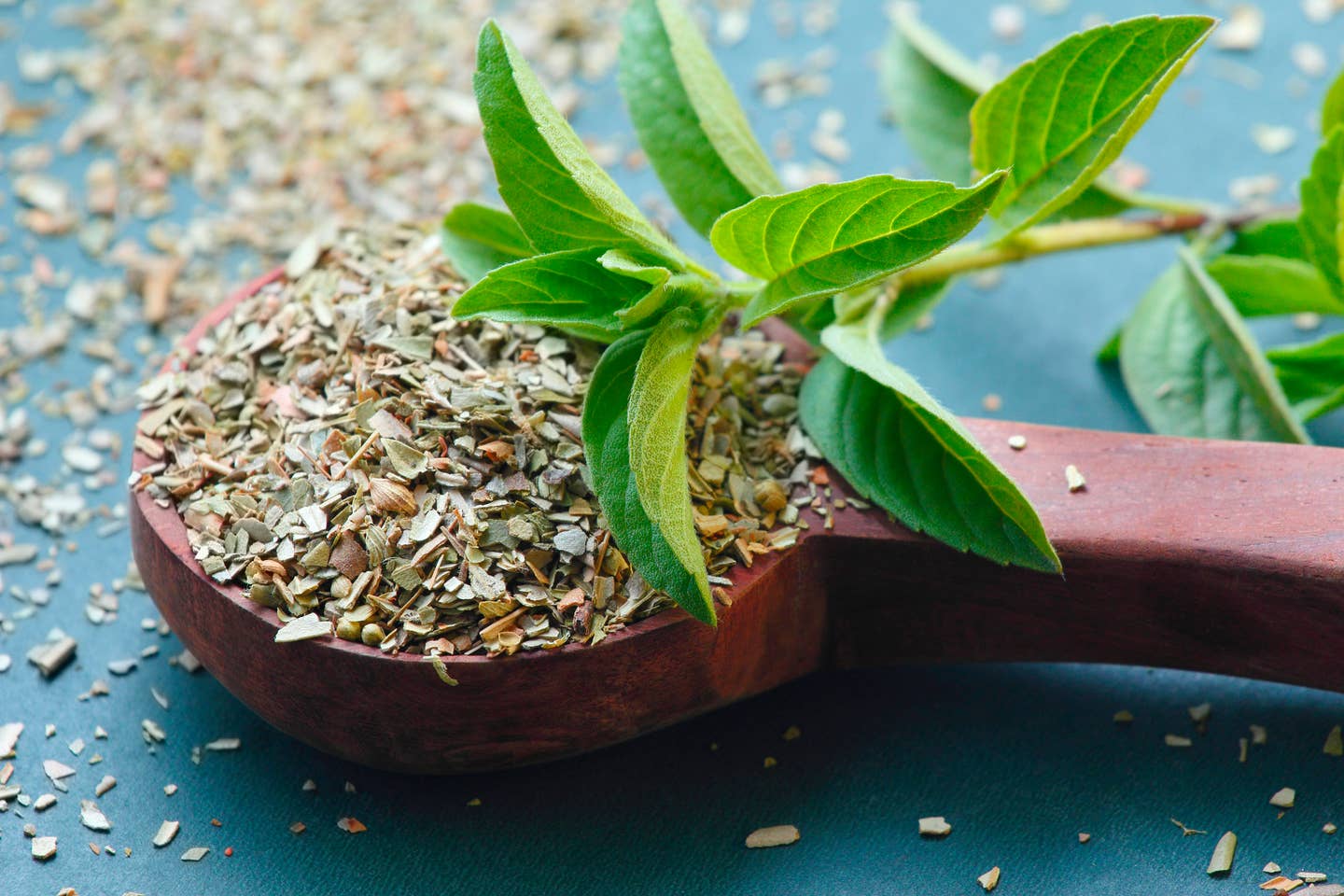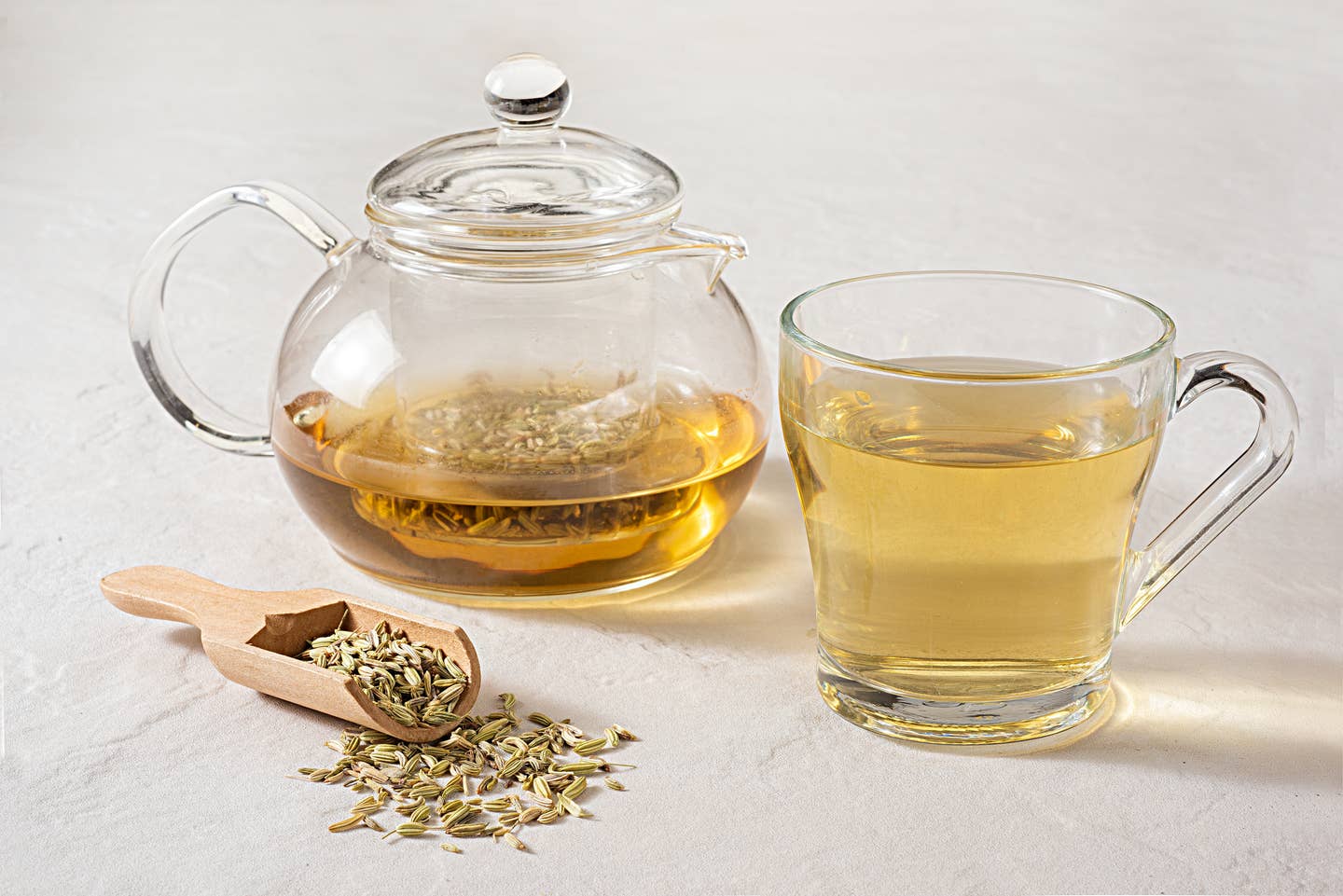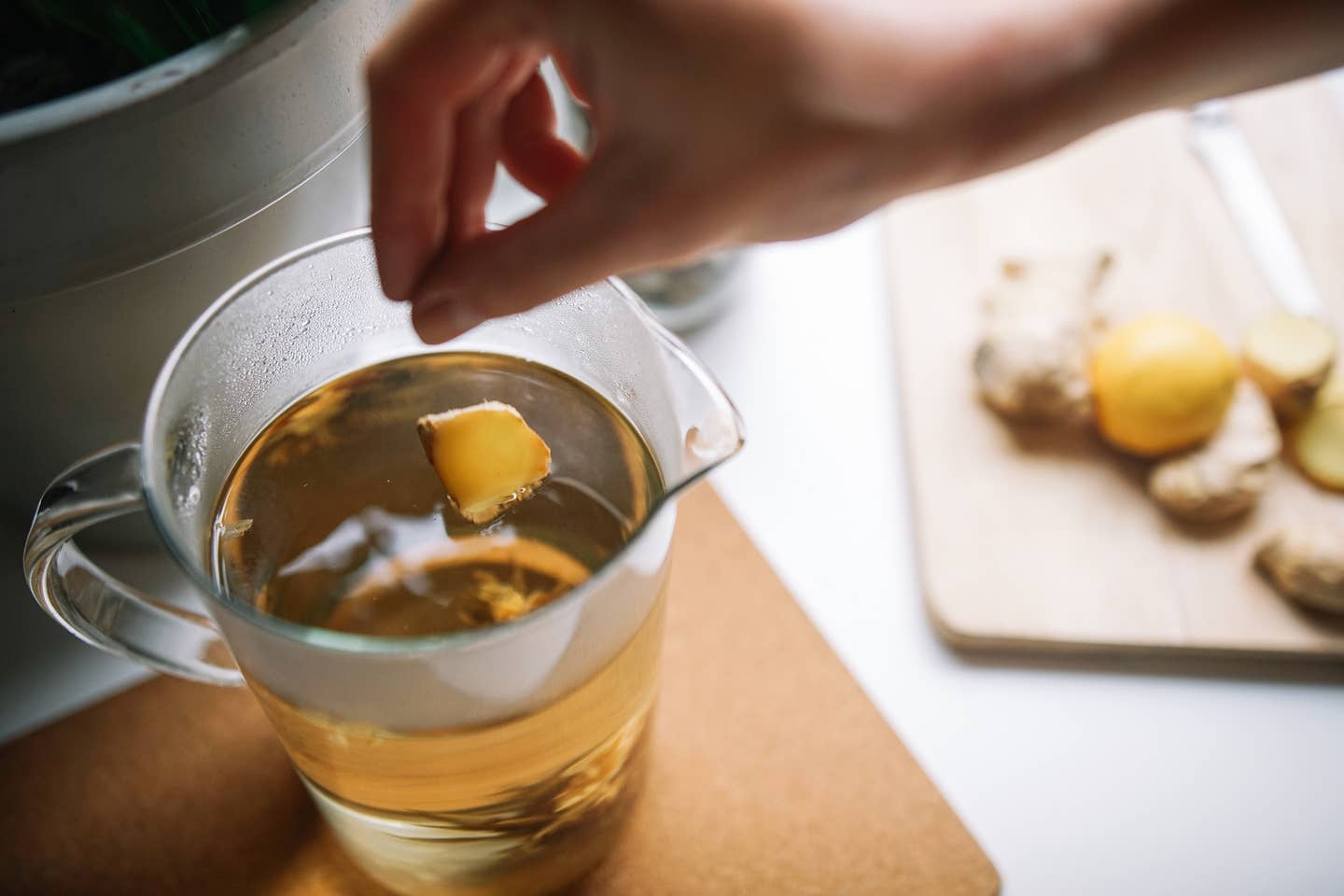
Drink This Tea Every Day to Reduce Stress. Could it One Day Treat Cancer?
For anyone who feels stressed or finds it hard to meditate or practice yoga, there's a quick fix just for you, and it's as easy as one, two, tea.
One review study found that the Holy Basil herb, also known as tulsi, when brewed as tea has stress-relieving traits due to its powerful antioxidants that can protect your body against some of the most uncontrollable stressors, like environmental pollution.
"Considered a potent adaptogen, tulsi has a unique combination of pharmacological actions that promote wellbeing and resilience," according to the study's lead author, Professor Marc Cohen, one of Australia's pioneers of integrative and holistic medicine.
Studies have shown that the herb also acts as an anti-depressant and boosts cognitive function as well as memory, and has the ability to protect cells from diseases, including precancerous and cancerous cells, pre-diabetes, heart diseases, inflammation, and other chronic health conditions.
In Ayurvedic practices, drinking holy basil tea daily is recommended for its natural calming benefits. It's often referred to as "Liquid Yoga," because the feeling you get after drinking tulsi tea has been compared to the feeling of peacefulness that yoga can provide. The herb has also been called "The Incomparable One,” as well as “Mother Medicine of Nature” and even “The Queen of Herbs," for its medicinal and spiritual purposes.
We compiled the five top health benefits of tulsi tea from one study overview titled, Tulsi - Ocimum sanctum: A herb for all reasons. You can buy holy basil tea on Amazon or specialty health food stores.
The 5 Health Benefits of Holy Basil, aka Tulsi or Tulsi Tea
1. Holy Basil Helps Detoxify and Protect the Body
Tulsi contains high levels of phenolic compounds and antioxidant properties, according to the review study that suggests the tea can protect the body from toxin-induced damage, calling Tulsi the "body's internal housekeeping."
In the lab, tulsi increased the number of enzymes that protect the cells by supplying antioxidants that help clean up damaged free radical cells, often caused by environmental toxins, chronic stress, and other health conditions.
2. Holy Basil May Help Fight Certain Cancers
Not only does holy basil protect the cells from everyday toxins but it also reduces DNA damage, which helps "prevent cancers caused by toxic compounds," according to the study authors. In addition, Tusli "induces apoptosis in precancerous and cancerous cells, thereby reducing the growth of experimental tumors and enhancing survival."
Tulsi also appears to protect the liver against toxic chemicals and helps the body to eliminate these toxins by activating enzymes such as the cytochrome P450, a group of enzymes that flush oxygen into the liver, helping it be more effective.
The study concludes by explaining how important tulsi is to the modern age not only for protection against diseases, but also for protection against pollutants, pesticides, heavy metals, radiation, pharmaceuticals, and other man-made toxicants.
3. Holy Basil Helps Alleviate Physical Stress
Tulsi has the ability to protect the body against internal and external cell-damaging activities, therefore, it has a big impact on three types of stress, physical, metabolic, and mental.
Exposure to environmental pollution and man-made toxins is known to cause physical stress on the body, but tulsi has been proven to protect against these kinds of damage.
The review study defers to a study that used forced-swimming and cold-exposure stress on animals who were given tulsi showed that the herb "enhances aerobic metabolism, improves swimming time, reduces oxidative tissue damage, and many psychological and biochemical parameters caused by physical stress."
In addition, the study also pointed out that tulsi helps reduce acute and chronic noise-induced stress on animals. Therefore, if you're experiencing fatigue, soreness, aches, and other physical stressors, tulsi tea may help alleviate tension.
4. Holy Basil Helps Alleviate Metabolic Disorders
Tulsi is known to help alleviate metabolic disorders such as insulin resistance, pre-diabetes, or high blood sugar, which can lead to chronic inflammation, heart disease, and more.
When diabetic rats were given tulsi it helped to reduce blood glucose and protect their kidneys and liver from damage caused by chronic high blood sugar.
In another 12-week study of type 2 diabetes patients reported greater improvement in both blood glucose and A1c levels when they were given 300 mg of tulsi leaf extract along with an antidiabetic drug. Taking the tulsi extract resulted in better outcomes than those experienced by patients who took the drug alone without the tulsi.
Therefore, tulsi is credited with ultimately reducing inflammation in the body and mitigating the metabolic stressors caused by high blood sugar.
5. Holy Basil Helps Alleviate Mental Stress
Regular consumption of tulsi helps alleviate mental stress by relaxing and calming the mind, the review of 31 studies found, due to its "anti-depressant activity and positive effects on memory and cognitive function.".
In a six-week randomized, double-blind, placebo-controlled human study, researchers reported that tulsi "improved stress scores, sexual and sleep problems, and symptoms such as forgetfulness and exhaustion," according to Professor Cohen, who taught at RMIT Bundoora West Campus.
Bottom Line: Taking Tulsi or drinking Tulsi Tea can help you fight off stress
For anyone who feels that the stressors of modern life are creating an unhealthy mental state, drinking tulsi tea or taking tulsi extract can help combat those stressors in the body and help your body feel calmer and able to fight off the contributing stressors that can make us sick.
For more great content about how to live your healthiest and for reasons to eat a more plant-based diet, check out the Health & Nutrition stories on The Beet.
The 13 Best Foods to Boost Your Immune System to Fight Off COVID-19 Symptoms
Here are the best foods to eat on repeat, to boost immunity and fight inflammation. And stay off the red meat.
1. Citrus for Your Cells and Healing
Your body does not produce vitamin C, which means you need to get it daily to have enough to create healthy collagen (the building blocks for your skin and healing).The recommended daily amount to shoot for is 65 to 90 milligrams a day, which is the equivalent of one small glass of orange juice or eating a whole grapefruit. Almost all citrus fruits are high in vitamin C. With such a variety to choose from, it's easy to get your fill.
2. Red Peppers to Pump Up Skin and Boost Immunity with Twice the Amount of Vitamin C as an Orange Has
Want even more vitamin C, add red bell peppers to your salad or pasta sauce. One medium-sized red bell pepper contains 152 milligrams of vitamin C, or enough to fulfill your RDA. Peppers are also a great source of beta carotene, a precursor of vitamin A (retinol). How much beta carotene do you need a day: You should try to get 75 to 180 micrograms a day which is the equivalent of one medium bell pepper a day. But a red pepper has more than two and a half times your RDA for vitamin C so eat them all winter long.
3. Broccoli, But Eat It Nearly Raw, to get the Most Nutrients Out of It!
Broccoli may be the most super of superfoods on the planet. It's rich in vitamins A and C as well as E. The phytochemicals in it are great for arming and strengthening your immune system.How much lutein should you eat in a day: There is no RDA for lutein, but experts say get at least 6 milligrams.
4. Garlic, Eaten By the Clove
Garlic isn't just a great flavor-enhancer, it's essential for your health. Garlic’s immune-boosting properties are tied to its sulfur-containing compounds, such as allicin. Allicin is thought to improve your immune cells' ability to fight off colds and flu, and viruses of all kinds. (Smelling more garlic on the subway? It could be smart coronavirus management.) Garlic also has anti-microbial and anti-viral properties thought to fight off infections. How much should you eat in a day: The optimal amount of garlic to eat is more than most of us can fathom: Two to three cloves a day. While that may not be doable, realistically, some people take garlic supplements to get 300-mg dried garlic in a powdered tablet.
5. Ginger is a Power Player for Immunity and Digestion
Ginger is another ingredient that has super properties when it comes to fighting off illness. It has been shown to decrease inflammation, which can help if you get swollen glands or a sore throat or any inflammatory ailment. Gingerol, the main bioactive compound in ginger, is a relative of capsaicin, and is responsible for much of its medicinal properties. It has powerful anti-inflammatory and antioxidant benefits.How much should you eat a day: Most recommendations land on 3–4 grams of ginger extract a day, or up to four cups of ginger tea, but no more than 1 gram a day if you are pregnant. Some studies have linked high dosages to an increased risk of miscarriage.
6. Spinach, Wilted, Not Steamed (Also Kale and Dark Leafy Greens of All Kinds)
Spinach is not only packed with vitamin C but also antioxidants and beta carotene, both of which give your immune system the healthy boost it needs to fight off invaders. Don't overcook your spinach, since the more it's cooked the less active the antioxidants will be. If you eat it raw or lightly steamed you'll keep more of the nutrients intact.How much should you eat a day: Aim for 1 cup fresh spinach or 1/2 cup cooked per day, but this is the right moment to try the raw or slightly wilted approach. Order warm or wilted spinach salad when you go out, or make it yourself with olive oil, pine nuts, and vegan parm.
7. Almonds for the Win, Pop Them Like Candy
Vitamin E in almonds will help ward off colds and flu and is key to your immune system humming along. It’s a fat-soluble molecule, meaning it requires the presence of fat to be absorbed, so nuts are the perfect package for E to make it into your system.How much should you eat in a day: A half-cup serving, or 46 whole, shelled almonds, provides almost 100 percent of your RDA of vitamin E. Almonds are great for you but they don't come with a "free" pass, since 1/4 cup is a serving and has 162 calories, so double that for your RDA and you're eating about 325 calories. Throw them into smoothies instead.
8. Turmeric to Fight Inflammation, Put it In Your Tea or Smoothie
This highly pigmented spice is known for its anti-inflammatory qualities. How it helps immunity? It decreases exercise-induced muscle damage. Tumeric bolsters the immune system by stimulating antibody formation and people with auto-immune diseases are told by their doctors to take 500 mg of curcumin daily to reduce inflammation and stave off soreness.How much should you eat in a day: Try adding extra Tumeric to your diet during periods of stress or during flu season. Or take 500-2,000 mg of curcumin to help fight inflammation and power up your immune system.
9. Green Tea by the Gallon, Skip the Coffee and Sip this Instead
Green tea has high levels of EGCG, (epigallocatechin gallate) a hard-working antioxidant that is known to boost immune function. Green tea is steamed so the EGCG is still active when you drink it.Green tea also contains L-theanine, an anti-oxidant which appears to help in the production of T-cells in your body, the killer L-theanine may aid in the production of germ-fighting compounds in your T-cells.How much green tea should you drink in a day: The optimal amount is three to five cups in a day, but most people won't get to that level. Any amount is better than nothing. Swap out a usual beverage daily for green tea could improve your health.
10. Papaya, The Tropical Healer to Keep You Vacation-Healthy All Year Round
Papaya delivers over twice your recommended daily amount of vitamin C in one fruit. It also contains an enzyme called papain that has anti-inflammatory effects -- and inflammation is one factor in most illnesses, so avoiding it can help your body fight off bacterial infections like sinusitis.Papayas contain potassium, vitamin B, and folate, which is a powerful cell rebuilder. Exactly how folic acid works to build immunity is linked to its role in protein synthesis, and researchers think that any mechanism in which cells proliferate can be affected (which is why it's critical for pregnant women). People who are folate-deficient have compromised immune systems.How much folate should you eat a day: Whether you are pregnant or not, folate (vitamin B9) is a great vitamin to keep your cells healthy and strong. The recommendation is 400 micrograms a day, or get it from legumes, spinach, papayas, and avocados.
11. Kiwis, a Vitamin Powerhouse
Kiwis are full of folate, vitamin K, vitamin C, and potassium. These vitamins in combination work in the body to build healthy cells, fight infection and keep your immune system humming along. Vitamin K deficiency is rare but when people don't have enough they suffer from weak bones and compromised immune systems. The inflammation system in the body is also dependent on vitamin K, especially your killer T cells that mobilize and fight cancer and other diseases.How much should you eat in a day: Vitamin K is one of the unsung heroes of the body. Women should get 90 micrograms a day, and men should have 120 micrograms.
12. Sunflower seeds to sprinkle on salads or eat by themselves
Sunflower seeds are especially healthy since they provide phosphorus, magnesium and vitamin B-6 as well as vitamin E. Your immune system needs vitamin E to function at full throttle. You can also get vitamin E from avocados and spinach and broccoli.How much should you eat in a day: Anywhere from 1 ounce (30 grams) per day to a healthy handful is considered healthy, but because they are high in sodium you might want to refrain from eating the entire bag. The raw seeds have 204 calories per quarter cup.
13. Miso, Soup or Paste to Add to Your Soups and Salad Dressings
The nutrients in miso -- which is a soybean paste that has been fermented with salt and a koji starter -- boosts immune system function by delivering healthy probiotics to the gut, making your microbiome healthier. How does Miso benefit your immune system? It is a "sirt" food, which are foods that contain high levels of ‘sirtuins’ or proteins that regulate cells and activate metabolism. A diet high in sirts is believed to lead to weight loss, increased wellness and longevity.How much should you eat in a day? Researchers believe that consuming one bowl of miso soup per day, as is the tradition in Japan, lowers the risks of breast cancer. Other than its high sodium content there is no reason to stay away from miso with all its varied health benefits. We say cheers to that.
More From The Beet






